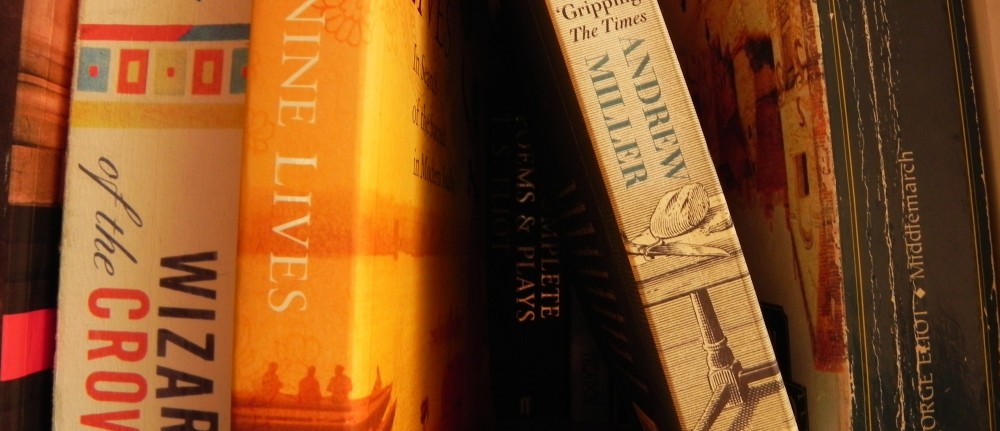 ISBN: 978 1 4088 1603 5
ISBN: 978 1 4088 1603 5
The Song Of Achilles is a contemporary retelling of the myth of Achilles, by Madeline Miller. The novel covers the familiar ground of Achilles semi-divine origins, his friendship with Patroclus, his training with Chiron, and his role in the eventual siege of Troy. Those who are familiar with the myth may question the point of its retelling.
The answer may be found in the nature of myth. Originating in an era where literacy was a minority pursuit, oral retellings of a tale by story tellers were common place. While we may associate these tales with surviving versions which are familiar to us, such as the version which appears in Homer’s Iliad, these tales were broadly told by multiple tellers.
As such multiple versions of popular myths existed simultaneously, definitive versions being a later product of history. Mythical stories tend to feature archetypical characters and scenarios which provided a scaffold for story tellers to weave their craft around. This accounts for the durable structure of myth which can incorporate multiple minor alterations to its tapestry without losing the core of the story.
So how has Miller fared in retelling a tale told previously by giants such as Homer and Plato? Quite well I’m pleased to report. Instead of taking on these masters in their home territory, the epic, Miller has moved arenas to the very modern realm of the personal and individual. Characters found in preserved versions of the Achilles myth are presented in a more nuanced form derived from realist tradition with added contemporary concerns such as individual psychology and personal motivation not present in ancient versions.
This is particularly evident in the portrayal of the relationship between Patroclus and Achilles. In earlier versions of the myth we are assured of these men’s friendship and take it as a given without been told much about the reasons behind it. This has left the nature of their relationship open for interpretation according to the tastes and needs of the storyteller. Miller has chosen to portray it primarily as a romance and skilfully depicts the maturation of their relationship as it develops from childhood companions to adult lovers, which fully accounts for their devotion to each other.
Despite Achilles’ starring role in the title the tale is told from the perspective of Patroclus which helps to accentuate the human rather than divine aspects of the tale. We observe the deeds of the demi-god Achilles from a very specific human perspective. This alters the dynamic of the tale radically, instead of being passive observers of a hero and his deeds we feel concern about for Achilles’ wellbeing and fret for his safety along with Patroclus. I felt that for the author humanity is the real star of the show, its complexity and contradictions being of more interest to her than the two dimensional traits of godhood. There is evidence for this in the novels focus on Patroclus, and the fact that most of Achilles divine deeds and interactions take place off page whereas his more human moments are what drive the narrative.
The author’s realistic treatment extends to the more fantastical characters also. Chiron the centaur, instructor of Achilles and Patroclus, came alive for me in a way I haven’t often experienced with fantastical characters. The fact that he was a human torso attached to a horse seemed the most natural thing in the world. This rendering of the fantastic as natural had such an effect on me that when Scamander, a river god, suddenly emerged to block Achilles approach of Troy it seemed like an ordinary and logical thing to happen.
The only character to retain some of the remoteness of godhood is Achilles’ imposing mother, the sea nymph Thetis. Thetis enters and leaves the story as she pleases exuding a terrifying inhuman presence as she does so. Yet ultimately her concerns are for her son’s future, maternal instincts being common to both mortals and goddesses. Thetis is horrified at her sons coupling with Patroclus, feeling a mortal unworthy of her demi-god son she shows that status anxiety is not an exclusively human trait.
Humour features throughout the book as well. Two moments in particular stood out for me as particularly amusing, the first being Chiron’s sceptical appraisal of a lavish jacket designed for a horse and the second a comment made by Odysseus to Pyrrhus about historical memory and posterity. The humour serves the novel well and helps lighten the mood in a story concerned with conflict and fate.
I thoroughly enjoyed this novel and was surprised by my reaction to it. I had initially approached it with some scepticism given that I knew the broad outline of the plot already and expected to this to temper my enjoyment of the novel. Yet despite initial hesitation I found the book impossible to put down and nothing less than compelling. So whether you are a seasoned scholar of ancient Greek myth, a greenhorn looking for a way into these stories, or just somebody looking for a decent read, pick up The Song Of Achilles, you won’t regret it.
